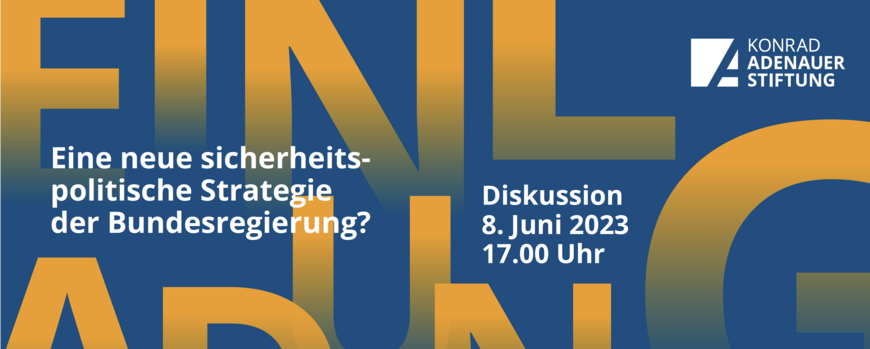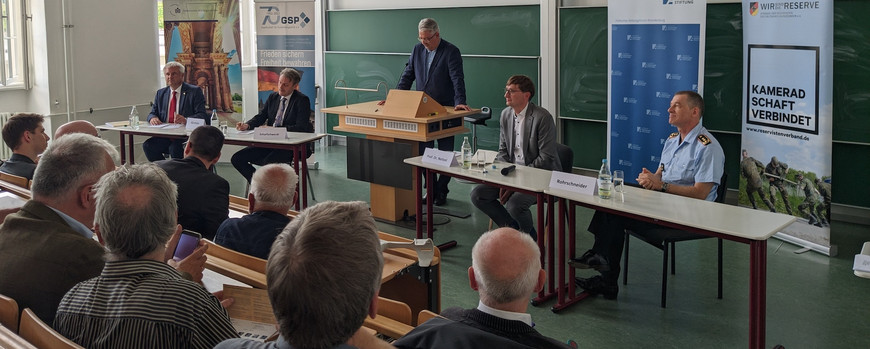08.06.2023: High-Profile Event on Security Policy
High-Profile Event on Security Policy
A high-profile panel discussion on “A new security policy strategy of the Federal Government?“ took place in Building 9, Room 1.12 of the Neues Palais campus of the University of Potsdam on 8 June 2023, 5 pm.
Russia has been waging war against Ukraine since February 2022. At the same time, the relationship between China and the western world has deteriorated. Consequently, an intensive debate is raging on how German foreign and security policy has to change to be able to react to the challenges the future holds. The Federal Government has announced a new National Security Strategy for 2023. It will be based on a “broad concept of security”. This raises questions: – What are the foreign and security interests of Germany? – How will the “broad concept of security” be defined? – What implications will this have for the Bundeswehr? – Which role will Germany play in the framework of NATO and the Common Security Policy of the European Union?
Discussants were Michael Schwarfschwerdt, Director of the Policy Planning Staff of the Foreign Office, Lieutenant-GeneralKai Rohrschneider, Department Head Command Armed Forces in the Federal Ministry of Defence, Knut Abraham, Chairman of the Committee on Human Rights and Humanitarian Aid of the German Bundestag and Member of the Foreign Affairs Committee. The discussion was moderated by Prof. Dr. Sönke Neitzel, Professor for Military History and Cultural History of Violence at the University of Potsdam. Stephan Raabe, Representative of Konrad Adenauer Stiftung for Brandenburg State, opened the discussion.
Unfortunately, the strategy had not been published at the time of the discussion. While all panelists agreed that deficits existed in the strategic foresight and the “strategizing ability” of the Federal Government, it was Scharfschwerdt who pointed to the institutionalization process that this first national security strategy of the Federal Government will trigger. He hoped that the government would update this “umbrella document” once every four years. This would institutionalize the strategic discourse and lead to more coherence between the strategy processes of the individual cabinet-level ministries. Rohrschneider emphasized that the armed forces were also “no strategy-free zone”, given that strategic decisions would be taken also beneath the high political level of the defense ministry. Abraham explicitly welcomed the strategy process but worried about a dilution of the concept of security if too many policy areas beyond civil protection and emergency management should be included in the concept of comprehensive security.
This event was jointly organized by the Chair of War Studies at the University of Potsdam and the Political Education Forum Brandenburg of Konrad Adenauer Stiftung, and in cooperation with the Potsdam Section of the Association for Security Policy (GSP), the German Atlantic Association as well as the Brandenburg Section of the Association of Reservists of the German Bundeswehr.


